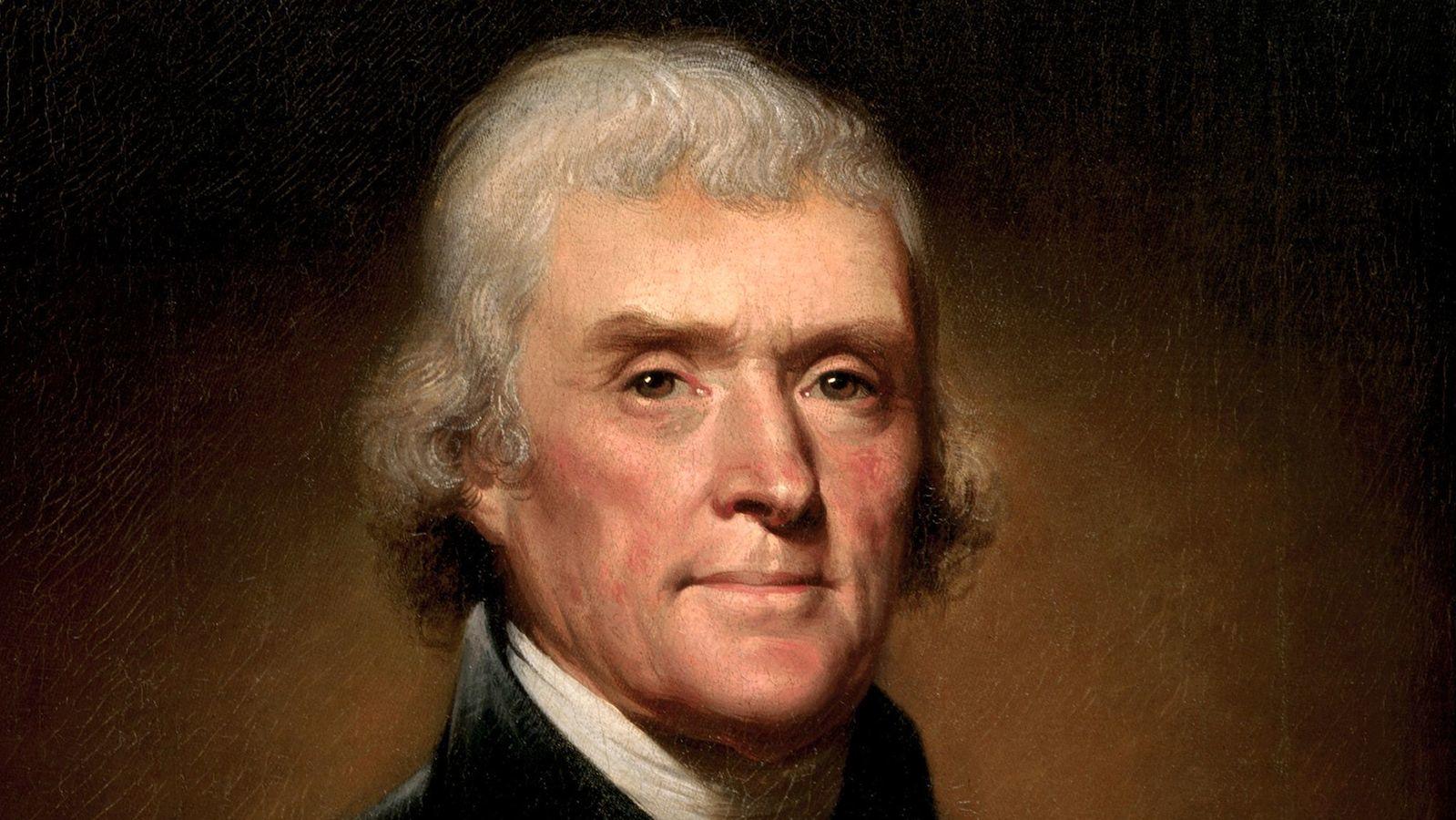Thomas Jefferson is deservedly a hero to American Jewry. His was one of the few voices in the early republic fervently championing equal political rights for Jews. Jefferson’s Bill for Establishing Religious Freedom in Virginia is a classic American statement of religious toleration. Significantly, while Jefferson championed Jewish rights, he did not do so out of respect for Judaism but because he respected the right of every individual to hold whichever faith they wished.
Jefferson’s advocacy of civic equality for American Jewry began as early as 1776, when he co-sponsored a bill–one the Virginia legislature ultimately defeated — that would have allowed Jews, Catholics, and other non-Protestants to be naturalized as Virginia citizens. During the debate, Jefferson quoted John Locke’s argument that “neither Pagan nor Mahamedan nor Jew ought to be excluded from the civil rights of the Commonwealth because of his religion.”
Four decades later, in 1820, Jefferson wrote to the Charleston Jewish physician, Dr. Jacob De La Motta, “Religious freedom is the most effectual anodyne against religious dissension.” Jefferson told De La Motta that he was delighted to see American Jews assuming full social rights and hoped “they will be seen taking their seats on the benches of science as preparatory to their doing the same at the board of government.” Subsequently, referring to the reading of the King James version of the Bible in public schools, Jefferson expressed his belief that it was a “cruel addition to the wrongs” Jews had historically suffered “by imposing on them a course of theological reading which their consciences do not permit them to pursue.” To Joseph Marx of Richmond, Jefferson expressed “regret at seeing a sect [the Jews], the parent and basis of all those of Christendom, singled out for persecution and oppression.”
While Jefferson advocated for the rights of Jews, he held aspects of Judaism in relatively low regard. In fairness, Jefferson opposed all religions based on divine revelation. He believed that God’s existence could be proven by reason and common sense rather than faith. A detractor of all priests, he found those of the Hebrew Bible “a bloodthirsty race, as cruel and remorseless as the being whom they represented as the family of god of Abraham, of Isaac, and of Jacob, and the local God of Israel.”
With your help, My Jewish Learning can provide endless opportunities for learning, connection and discovery.
In 1787, Jefferson summed up his view of Jewish revelation in a letter to his nephew, warning him to be skeptical of “those facts in the Bible which contradict the laws of nature.” As one example, he cited the assertion in the Book of Joshua that the sun stood still for several hours. Since that would have meant, in scientific terms, that the earth stood still, Jefferson asked his nephew to consider how the earth, spinning on its axis, could have stopped suddenly and started rotating again without enormous destruction to natural and manmade structures. Similarly, the rationalist Jefferson doubted that God personally inscribed the Ten Commandments on a tablet that Moses later destroyed and then re-wrote.
It bothered Jefferson that the God of the ancient Hebrews was, in his words, “a being of terrific character, cruel, vindictive, capricious and unjust.” He could also not understand how Jews could believe that “the God of infinite justice” would “punish the sins of the fathers upon their children, unto the third and fourth generations.” He agreed with the view expressed by John Adams that, in respect to God, “the principle of the Hebrew is fear.”
Jefferson thought that reason and logic demanded a belief in an afterlife, an area in which he found Judaism deficient. Jefferson argued that, without fear of punishment beyond the grave, individuals lacked an incentive to behave well and that, without hope of reuniting with loved ones, family commitments and friendships would lose their gravity. Since Judaism did not universally accept a definitive afterlife, Jefferson thought it a religion without utility.
Despite his reservations about the “defects” he perceived in Judaism, Jefferson never wavered in his commitment to civil and religious freedom for Jews. Jefferson’s most notable achievement in establishing religious and civic toleration for American Jewry was his 1779 Bill for Establishing Religious Freedom in Virginia. Adopted in 1785, the Bill proclaimed: “No man shall be compelled to frequent or support any religious worship, place or ministry whatsoever, nor shall be enforced, restrained, molested or burthened in his body or goods, nor shall otherwise suffer, on account of his religious opinions or belief; but that all men shall be free to profess their opinions in matters of religion, and that the same shall in no wise affect their civil capacities.”
Two years later, in 1787, the citizens of the United States adopted the Constitution. Article VI contains the following, Jefferson-inspired, phrase: “No religious test shall ever be required as a qualification to any office or public trust under the United States.”
Despite his attitude toward Judaism as a religion, Jefferson’s advocacy of the rights of Jews — and those of other religious minorities — has become the law and custom of the land. Toleration of all religions, the absence of an official government religion and the right to practice and express religious thought freely are the hallmarks of Jefferson’s legacy. Despite his private views of Judaism, he was indeed a most “righteous Gentile.”
Chapters in American Jewish History are provided by the American Jewish Historical Society, collecting, preserving, fostering scholarship and providing access to the continuity of Jewish life in America for more than 350 years (and counting). Visit www.ajhs.org.



